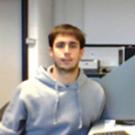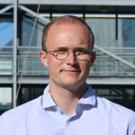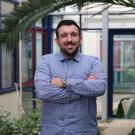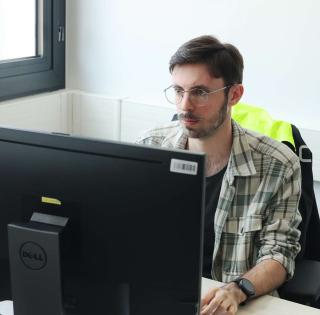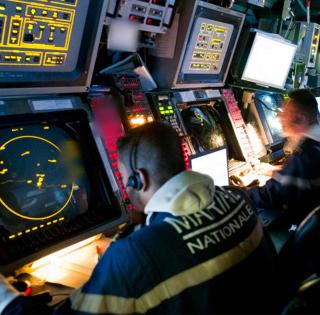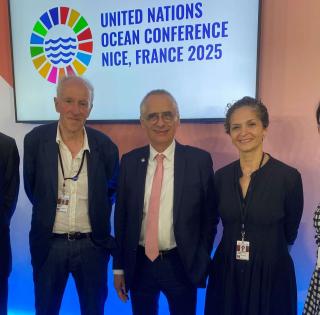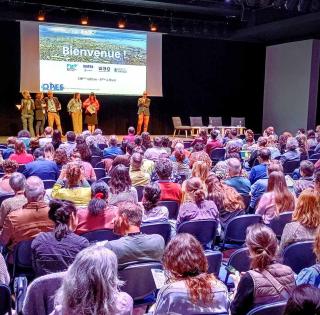
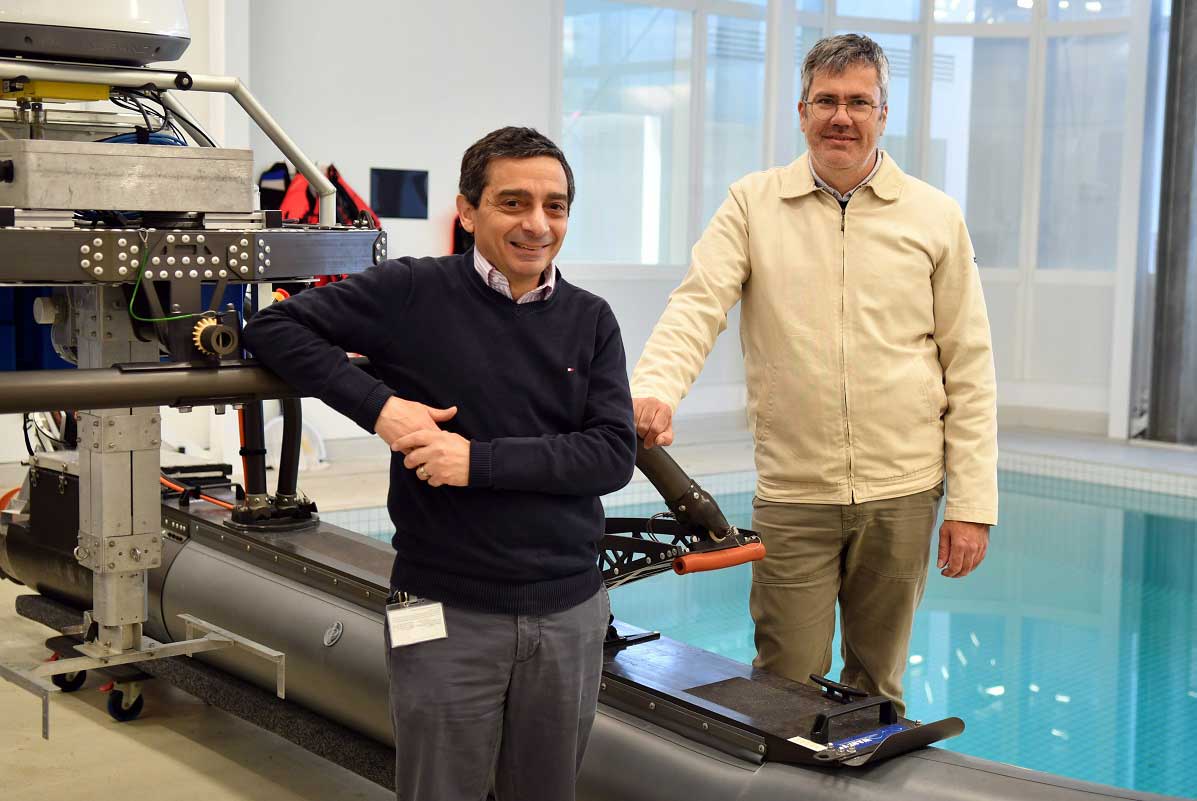
1. Can you tell us the story behind this mobility period : how did it come about ?
I had had the idea in mind for a long time…but from an idea to reality is always a bit of a journey.
My trip to Australia really came about through Australian partners visiting ENSTA Bretagne, especially Tony Kiriakou and Karl Sammut, from Flinders University. Indeed, Karl and myself have very similar scientific backgrounds and we hit it off immediately when it came to the subjects to be developed.
At the same time, I was sent by ENSTA Bretagne to work on the construction of a joint laboratory with Naval Group and Flinders University concerning autonomous vessels. These two factors fitted nicely into the school’s policy and my projects.
Family holidays in Australia and general enthusiasm set the ball rolling. All that was left to do was to organize the mobility period…and that wasn’t exactly easy!
2. Did you receive any help for this mobility period with your family ?
You can’t go it alone if you are leaving for 8 months…and upward of 5 months requires some logistics and forward planning. Materially, the DGA (French Procurement and Technology Agency), the Region Bretagne (Regional Council of Brittany) and ENSTA Bretagne helped with the smooth organization of the trip, and on the Australian side, Flinders University gave me access to fantastic work facilities.
On a personal level, Tony and Karl were excellent, answering a whole host of questions on everyday life.
3. What did you do when you were there?
This stay at Flinders University was an opportunity for in-depth discovery of new working methods. I managed to fit most of my classes into the first semester and I was able to count on a few colleagues to do the remaining hours.
In Australia, my work was dedicated to research in underwater robotics. This was led in conjunction with the students from Flinders who came to France on a Nicolas Baudin grant. When they returned to Australia, we were able to continue working on simulation tools to control autonomous marine systems.
4. What will you take away from this professional and personal experience?
To be repeated in a few years!
It wasn’t easy convincing the children to come back from Australia, the conditions were so ideal for them.
Scientifically, there was a lot of fruitful discussion. A different organizational structure, different mindset and way of thinking mean that ideas and your perception of the world progress.
Dedicated to my research, my trip enabled me to progress on the links which exist between Automatics, Machine Learning and Optimization. These thoughts will enable me to take up new research subjects.
5. In your opinion, what impact will this experience have on the partnership with Flinders University ?
Cooperation with Flinders University has made great headway, and it needs to continue. There are several new projects in the pipeline on subjects as diverse as GNC (Guidance, Navigation and Control) and object classification. However, there are also cybersecurity activities…All that is part of a vibrant partnership.
Travel between France and Australia is impossible for the moment but everyone can’t wait until we get back together for discussions.
6. Finally, what advice would you give to lecturers who are contemplating international mobility.
Each experience is unique and I’m not very well placed to be able to give advice…I would say, even if it is long and time-consuming to prepare, and requires a lot of personal investment, it is really worth it !










